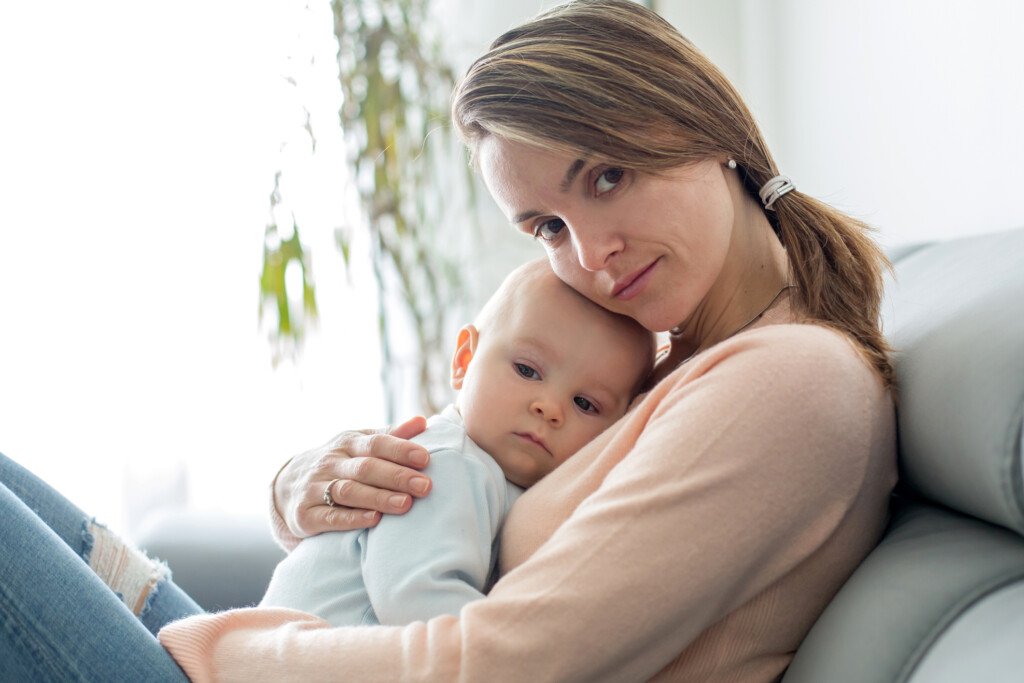TREASURING YOUR CHILDREN
20 Ways to Rock at Being a Mother [16]: Build Relational Resilience
To work on the next Way to Rock, to build relational resilience, it’s important you have at least had some time to grapple with earlier concepts.

As you get through the 20 Ways to Rock series, you will see a gradual progression of self-understanding, and development. With every new Way to Rock you become aware of new possibilities for personal growth, and the learning keeps going every day!
As you work through each one, things change. You change.
“Educating the mind without educating the heart is no education at all”
Aristotle
Go back to 20 Ways to Rock at Being a Mother [15]: Let Go of Shame
Congratulations! You are rocking it!
On this motherhood journey, it’s essential to know you are loved (Way One). It’s also important to be able to forgive others – and yourself (Way Six); and to be aware of living beyond your comfort zone (Way 15). And those difficult topics in Way 12, of grief and loss? Coming to terms with those are BIG.
When you are aware of these Ways to Rock, and they are part of your normal routine, you are winning! These build resilience in yourself, and you are in a good place to model it to your children by the simple act of opening your home.
Build Relational Resilience . . .
. . . By Opening Your Home to Others
Oh wowsers. As an introvert this one area, opening my home, was a huge struggle for me as a young adult. I really wanted to be one of those Open Heart, Open Home types, but it took time to get my head around how to create a great place for people to visit. To be completely honest, at the start of my adult life this space was awkward and not very pretty!
I suppose having lost my mother as a teenager meant this was a gap for me, and I lacked having a mother to talk it through with. But I pushed into this area, because instinctively I knew opening my home to others is an incredibly important statement to make.
It is no exaggeration to say that being open with your home is an act of generosity: of time, food, companionship and relationship. It’s a subtle, but direct, way of saying to the rest of the world, “We love anyone who comes to our place!” As a down to earth and honest Christian, reading the book Love, Acceptance and Forgiveness was formative for me as we moved forward into a place of openness in our household. You will most likely find it helpful too.
“When you have more than you need, build a longer table,
not a higher fence.”
Anonymous
Safety First
Ours is a home where anyone is welcome, and whoever arrives finds a place of warmth and welcome. Sometimes, it’s hard to leave yourself so open, because you really don’t know who will come through your door! So it’s a great way to build relational resilience.
Being hospitable, welcoming, and free to have others in your home says a lot to your children. These opportunities give them (and you) time to relate to people who are a little different in age, ability or ethnicity, in the safety of your own territory. As my children grew up, they were often excited when visitors were coming. Whether it was church friends, school friends, cousins, or someone unknown, they looked forward to being with anyone who came.
Deliberately Counter-Cultural
It’s a sad fact that children in our Western culture, are usually kept with a limited group of children who are all about the same age. This creates a “homogeneous” environment, which is convenient and easy to manage, but such a bland framework to develop life skills and build relational resilience. This homogenization happens from birth, and continues at playgroup, pre-school, school, sporting activities, youth group and church.
If you think for a moment about the possibilities in your local community to build cross-generational relationships, you will realize that generally, they are not usually thought of. No wonder it is difficult to build relational resilience!
However, home is different. Your home is a haven where age and cultural boundaries can safely be crossed. You might be surprised to know that both adults and children enjoy cross-generational interaction, even though it may be a little awkward at first.
The thing is, how else are children going to connect with adults in an adult world and experience other values, unless you safely give them opportunities? If your aim is to create fully-functioning adults by the time they reach their 20s, then it’s critical to make safe spaces for them to have adult friends, even when they are young.
And on the other hand, how can they learn to have children as friends, when they become adults? One of my daughters amazed her 20-something-year-old girlfriends when she explained that one of her best friends was a four-year-old!
High School Gumption
I also love telling the story about another of my daughters from her first day at high school. She’d got lost and couldn’t find her locker. So as the Principal was walking by, she asked him for help.
The Principal!
My gosh! On my first day of high school it was all I could do to say “Hello” to a teacher, let alone the Principal.
I put her extraordinary boldness down to two things: one, that she is an extrovert (and I’m not); and two, she’s so used to relating to adults, it was the natural course of action for her to take.
At home, you can build relational resilience like this with more safety than anywhere else. Although it must be said, it’s important to create appropriate boundaries, even at home.
It’s at home that natural opportunities arise for connection in all sorts of ways: over the dinner table, watching age-suitable movies, interacting with fun video or board games, working in the yard, or baking together. All these things are formational for children to learn and grow in understanding themselves, others and the world around them. Often, a suitable space was even created for discussion about spiritual things.
Our Weekly Habit
For a while every week we’d clean the house up one night after school and I’d make an enormous pot of soup. Then we’d have a motley bunch of people over, who came to share a meal with us. This all happened around the after-school violin lessons, and homework!
For some of our visitors it was the only time they’d eat in the company of friends all week. For others it was one of the few good meals they’d get. Some were drug-addicted, some were welfare dependent, one was a young deaf woman, many were from difficult backgrounds. For all of them it was an opportunity to build relational resilience. And they provided a great education for our children as they learned how other people lived. All in the safety of our home.
This habit also gave us opportunities at other times to talk about the issues our guests faced over our family dinner table. There’s nothing quite as drug-proofing as seeing the consequences of that behavior sitting at your own dinner table.
Looking back at those times now, I think we were doing this:
Don’t just pretend that you love others: really love them. Hate what is wrong. Stand on the side of the good. Love each other with brotherly affection and take delight in honoring each other. Never be lazy in your work, but serve the Lord enthusiastically.
Be glad for all God is planning for you. Be patient in trouble, and prayerful always. When God’s children are in need, you be the one to help them out. And get into the habit of inviting guests home for dinner or, if they need lodging, for the night.
Tips to Build Relational Resilience by Opening Your Home
There’s so much more that could be said about how to build relational resilience. But for now, let me leave you with the following tips:
1. Be wise about when you open your home
If you are over-stressed, or the kids are sick, then it’s not the time. Also, make sure you are being self-aware, open to change, ready to love, forgive and accept as outlined in the introduction to this blog.
Who you open your home to is also a question. It may, or may not, be a good idea to have the local drunk come by. Be discerning.
2. Your children learn from you
If you are fearful, worried, stressed about it, or inappropriately close to your guests, your children will pick those things up, and likely do the same. To model and build relational resilience, you yourself must be relationally resilient. This is why it’s so important to be actively working on the other Ways to Rock, as mentioned at the start.
3. Keep firm with setting the culture, especially regarding boundaries
When your visitors are absent, talk about boundaries with family members. Particularly emphasize that bedrooms are private places, and that personal space is important. But also, talk about good habits such as welcoming people with smiles and handshakes, and making eye contact with guests – whatever is important to you.
4. Be prepared!
By perfecting a few throw-together meals, and keeping the ingredients in your pantry for a few quick meals, you are more able to offer hospitality on-the-go. This will give you flexibility to have people over when the moment arises.
5. Not much food in the pantry?
This can be a special challenge, but it’s amazing what happens when the cupboard is bare, and you feel it’s the right moment to share what you have.
6. This is NOT a time for “children are seen and not heard”
While building relational resilience, your children will also learn self-confidence, the art of good conversation, gratitude, become world-wise and many more life skills. This is not possible if there is an expectation they will be silent. However, total mayhem is not a good idea either! Be sure to keep that balance.
7. Clothing awareness
When guests are around, it’s not time to let your children run around with little or no clothing. For their personal safety, and to reduce your guests’ embarrassment, make sure everyone is properly dressed.
8. Don’t let the size of your home stop you
If you live in a rental, haven’t got much furniture, or are doing a renovation, you can still offer hospitality. This may be part of pushing beyond your comfort zone, and dealing with shame! A picnic rug on the floor, with cardboard boxes for tables, can still be a special place of fun and enjoyment.
9. Enjoy!
To build relational resilience like this is to enjoy the benefits of good friendships and long-term relationships. It pulls your entire family together as you all actively work on making it a fun time for everyone. So go for it!
A final word from the author of Love, Acceptance, Forgiveness, Jerry Cook:
“Love is not license; acceptance is not agreement;
forgiveness is not compromise.”
Give me one of your hospitality tips. What’s one of the best things you have found to make a great welcoming space at your place?
Next week: 20 Ways to Rock at Being a Mother [17]: The Power of Letting Go
